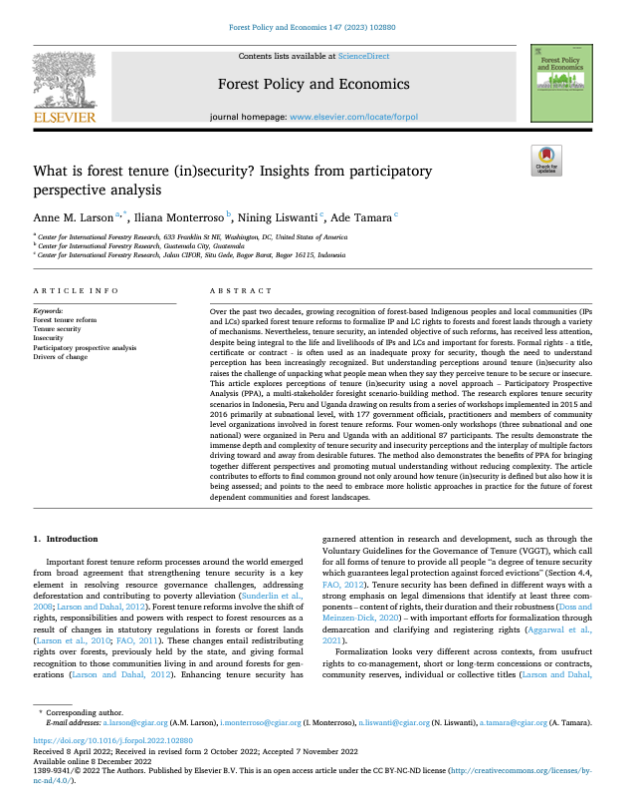What is forest tenure (in)security? Insights from participatory perspective analysis
Over the past two decades, growing recognition of forest-based Indigenous peoples and local communities (IPs and LCs) sparked forest tenure reforms to formalize IP and LC rights to forests and forest lands through a variety of mechanisms.



